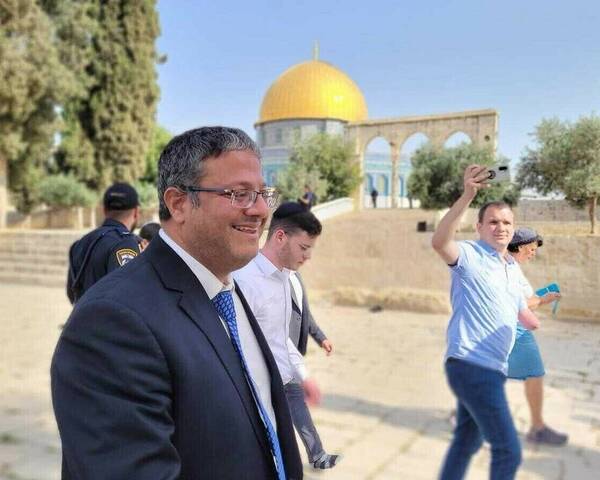Letters / On “The Nationalist Heresy of the Temple Mount”
I appreciate Joshua Leifer’s close look at Jewish visits to the Temple Mount/Haram al-Sharif within the context of Ben Gvir’s recent ascent. His engagement with the history of such visits is valuable and his consideration of the grave political consequences instructive. However, I take issue with his treatment of the halachic considerations involved.
In Leifer’s telling, “Israeli religious Zionism has undergone a series of crises that have led to a break with the Orthodox interpretation of Jewish law.” Such framing implies that halachic concerns are inherently insulated from political concerns and that religious Zionists’ incorporation of ethnonationalism into halachic considerations undermines the integrity of halacha. But halacha has never been objective or neutral; there is no halacha independent of “political” considerations. By platforming scholars who seem to maintain otherwise, Leifer’s analysis legitimates a purist approach to halachic interpretation, which is exactly the ideology that Haredi authorities use to license their monopoly on the Chief Rabbinate in Israel, granting them jurisdiction over Jewish marriage, divorce, burial, kosher supervision, conversion to Judaism, and the maintenance of “holy sites.”
The very institution of the Rabbinate as a state bureaucracy, not to mention the participation of Haredi parties in the Knesset are the result of halacha adapting to evolving circumstances. I cite these examples because they show how halachic innovation in response to changing conditions—including the establishment of a Jewish state!—is hardly exclusively a religious Zionist innovation. In fact, it is simply how halacha is practiced: it responds to conditions, including explicitly political conditions, as interpreted by decisors, be they religious Zionist, ultra-Orthodox, Conservative, or beyond. Leifer’s article unfortunately promotes the view that halacha exists in some mythological sanctum rather than only in, as, and through its practice.
Boston, Massachusetts
The letter writer is a postdoctoral fellow at the Elie Wiesel Center for Jewish Studies, Boston University and an ordained rabbi.
